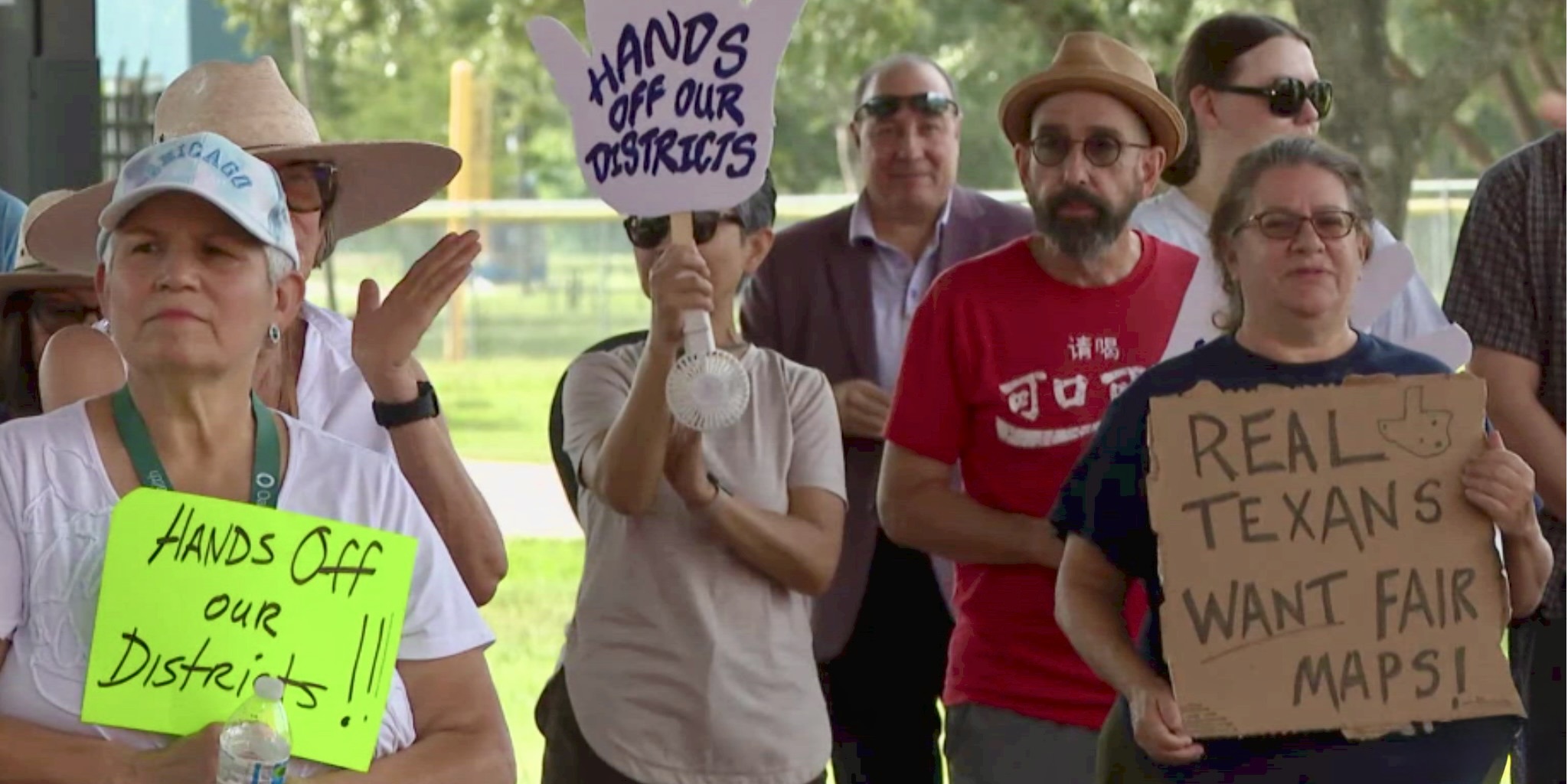Houston residents packed a heated public hearing this week to challenge Texas GOP redistricting efforts, accusing lawmakers of racial gerrymandering and voter suppression. The city is now a key battleground in the fight for equitable political representation in the state.

Emotions ran high at a recent public hearing in Houston, as residents passionately voiced their opposition to the Texas GOP’s proposed redistricting plans. Numerous attendees expressed their concerns regarding lawmakers, alleging instances of racial bias, political maneuvering, and intentional alterations of district boundaries aimed at solidifying Republican dominance while undermining the representation of Black and Latino populations.
The hearing, part of a series taking place throughout the state, attracted a diverse group of Houstonians, including civil rights advocates and ordinary citizens, all sharing a profound concern over what many referred to as “rig-districting.” “It’s time to end the practice of allowing the majority to choose its voters and return to a system where voters select their elected representatives,” a speaker from Houston asserted, as reported by CBS Austin.
The statement resonated in the space, with residents highlighting a redistricting procedure they claim is compromising democratic values for the sake of political advantage.
The contentious redistricting proposal emerges in the middle of the decade—an atypical timing that has sparked concerns among legal professionals and community advocates. Redistricting generally occurs once every decade, following the U.S. Census. In this instance, there is a push from Republicans for new boundaries only a few years after the previous maps were established, leading to claims of a calculated effort to seize power.
Rep. Jon Rosenthal (D-Houston), a staunch critic of the proposal, expressed his views bluntly: “This is a power grab at the expense of Black and brown communities.” He cautioned that the suggested modifications might exclude substantial portions of Houston’s community, where voters from minority backgrounds constitute a notable segment of the electorate.
In the meantime, U.S. Rep. Sylvia Garcia (D-Houston) expressed her concerns regarding what she perceives as a distraction from urgent matters impacting families in Texas. “Political games are pulling us in, while individuals face challenges with healthcare, education, and affordability,” she stated in remarks to CBS Austin.
During the hearing, organizations like the NAACP Houston Branch and Texas LULAC District VIII expressed significant dissent, characterizing the proceedings as lacking transparency and merely theatrical. “This hearing is a spectacle for political purposes,” stated one organizer. “The outlines have already been established.” This isn’t involvement—it’s a strategy to mitigate harm.
Despite Rep. Cody Vasut (R-Angleton), the chair of the House redistricting committee, stating that the GOP is “listening,” skeptics continue to express doubt. “If you’re paying attention, then where’s the transformation?” one Houston resident inquired during public comment.
The situation has become more complex with the involvement of former President Donald Trump, whose request for five additional Republican seats in Texas has heightened doubts about the intentions behind the redistricting. Mark P. Jones, a political scientist at Rice University, cautioned that such bold alterations might have unintended consequences, forecasting potential losses for the GOP in the newly configured districts.
Former Rep. Beto O’Rourke participated in the demonstrations outside the Texas Capitol, criticizing the alliance between Trump and Governor Greg Abbott as a clear violation of representative democracy. He emphasized that residents of Texas—particularly those in urban areas such as Houston—should have district boundaries that accurately represent their communities, rather than being influenced by political interests.
Amid ongoing discussions about redistricting, Houston has become a central player in the statewide conflict concerning voting rights and equitable representation. As six additional public hearings approach, numerous residents are encouraging their neighbors to remain engaged and express their opinions.
“This is more than just a map,” stated resident Christy Stockman. “This is our voice, our future, and we refuse to let it be silenced without a fight.”
.jpg)
Early voting for the March 3, 2026 Texas primary runs Feb. 17-27. Houston-area voters will decide key federal, statewide and local races, including a high-profile U.S. Senate contest and the open Harris County judge seat.
.jpg)
Federal officials temporarily shut down air traffic at El Paso International Airport after the Pentagon allowed Customs and Border Protection to deploy an anti-drone laser near Fort Bliss, according to two people familiar with the matter. The closure lasted only hours, but it stranded travelers and raised new questions about coordination between defense and aviation agencies.
.jpg)
Houston has already recorded six 80-degree days in 2026, and forecasters expect more this week as a February heat ridge pushes temperatures 15 degrees above normal. While daily records are unlikely to fall, highs could approach longstanding marks set in the 1960s.